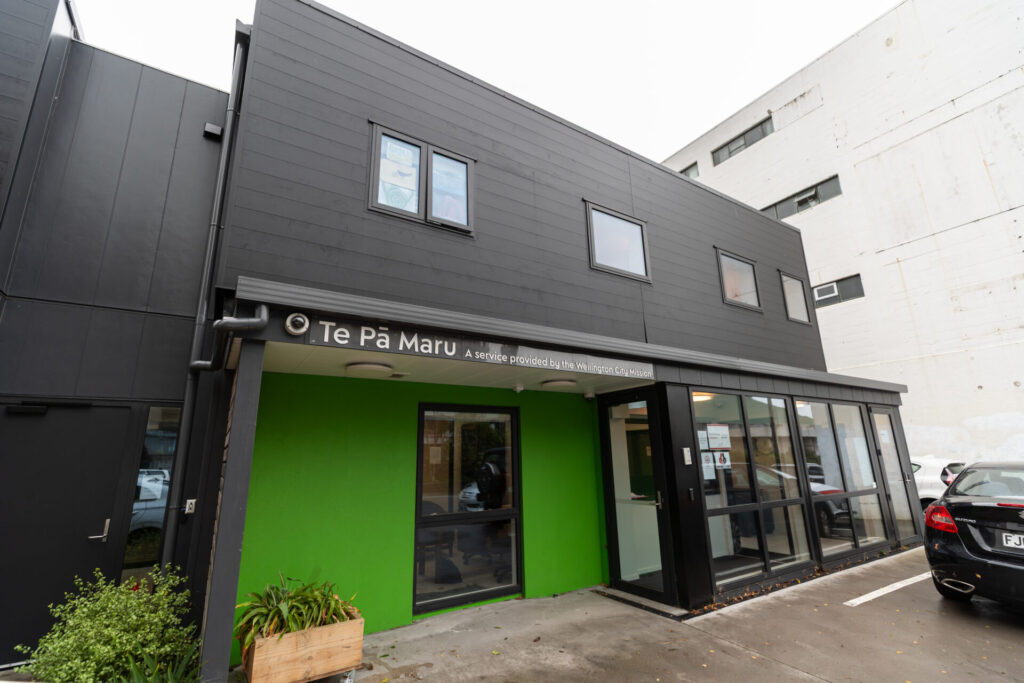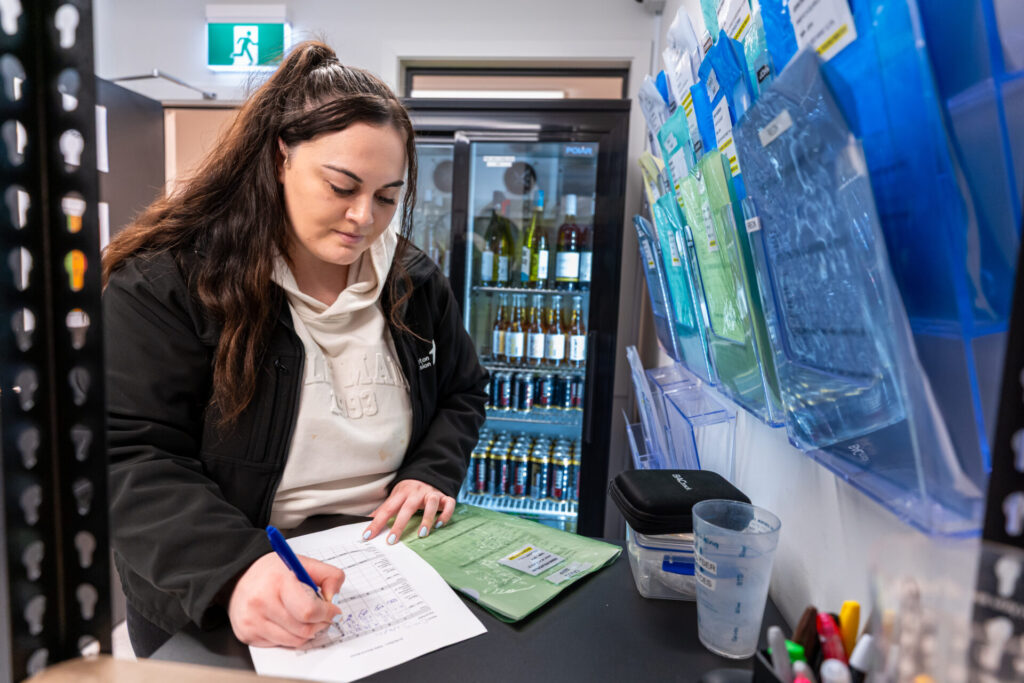Te Pā Maru
Located at 304 Taranaki Street, Te Pā Maru is the Wellington City Mission’s residential alcohol harm reduction unit.
Beginning operations in 2024, Te Pā Maru has 18 ensuite bedrooms, with shared cooking and dining spaces for kainoho (residents) and kaimahi. Kaimahi include Alcohol and Drug Practitioners, Social Workers and Kaitiaki (support workers), with additional access to other primary and secondary health services.
Te Pā Maru is not transitional housing. For some of our kainoho, Te Pā Maru might be their home for life.
WHO IS TE PĀ MARU FOR?
Te Pā Maru is a unique service provided by the Wellington City Mission to support those with severe addictions to alcohol. The whānau who live at Te Pā Maru often have a history of chronic homelessness, having been turned away from housing and other services because of their addiction. The Wellington City Mission works with residents to manage their addiction in a controlled environment, enabling them to maintain a safe and secure home.
We recognise that for most of our Te Pā Maru kainoho, being free of addiction is not a realistic expectation. Instead, living somewhere where they can be healthy, safe, and living more stable lives, will be a positive outcome.

HOW DO WE WORK WITH RESIDENTS?
Te Pā Maru operates a Managed Alcohol Programme (MAP) with whānau who reside in the building. This programme takes on a harm reduction approach, treating alcohol like medication.
Whānau are provided with alcohol from a dispensary, with scheduled doses according to a pre-agreed plan. People pay for the cost of purchasing their alcohol. This approach supports people to manage and control their drinking; reducing the harmful behaviours that alcohol causes, and enabling people to engage with the wrap-around support on offer in the building.
Those who live at Te Pā Maru experience a range of challenges. This includes poor physical health, mental health issues, alcohol-related dementia and cognitive decline, post-traumatic stress, family breakdown, poverty, and isolation.
In their time at Te Pā Maru, whānau will engage in meaningful activity that helps them to connect with others, build independence and bring their life experiences and skills to Te Pā Maru. They develop and care for a shared garden, take part in structured group work programmes, engage in healthy activities, such as walking and going to the gym, and volunteer and study in the wider community.
In its first year,17 people accessed the service, and every person who has stayed at Te Pā Maru has shown significant improvement in health outcomes. People have been able to better control their use of alcohol, resulting in less harmful behaviour to themselves, their families and the community – also reducing contact with the criminal justice system.

HEAR FROM A RESIDENT:
“After spending three years in jail, I came to this place. Since being here, I’ve changed my lifestyle, and I’ve done that for myself. I’ve become what you would call ‘legit’, by fitting in here at Te Pā Maru and following the rules. I’ve been off the meths, I’ve cut down on my drinking, and I’m eating well. There’s a structure here that works for me, and being allowed to drink something is a totally different way of treating people. It’s not looking down at people and punishing them for drinking, it’s accepting that they do drink and helping them do better for themselves.”
WHAT OUR CITY MISSIONER & WCC SAID:
Murray Edridge, Wellington City Missioner talks about the extraordinary impact Te Pā Maru had made in its first year of operation:
“There is always some trepidation when you do something new and untested. The success of the whānau who have lived at Te Pā Maru is testament to the importance of supporting people, whatever it takes, to make a difference in their lives. I had the privilege of attending the one-year anniversary dinner that was catered for by the whānau. Each of them spoke about the difference this place had made in their lives, with the common thread that had they not been at Te Pā Maru, they probably wouldn’t still be alive! Some things just have to be done.”
The Wellington City Council sees Te Pā Maru as an essential service for the city, as part of the City Safety and Wellbeing plan, says Harm Prevention Team Leader Millie Lambess:
“We absolutely support harm reduction approaches and see it as a vital part of addressing addiction in our communities. By backing a range of services and delivery methods, the Council recognises that no single solution fits all, and that diverse, person-centred support is essential for achieving better outcomes. Te Pā Maru and the kaimahi delivering this essential, evidence-based care are an invaluable asset to Wellington.”
Read our interview with Site Manager, Matt, who talks about the impact of Te Pā Maru one year on from beginning operations.
